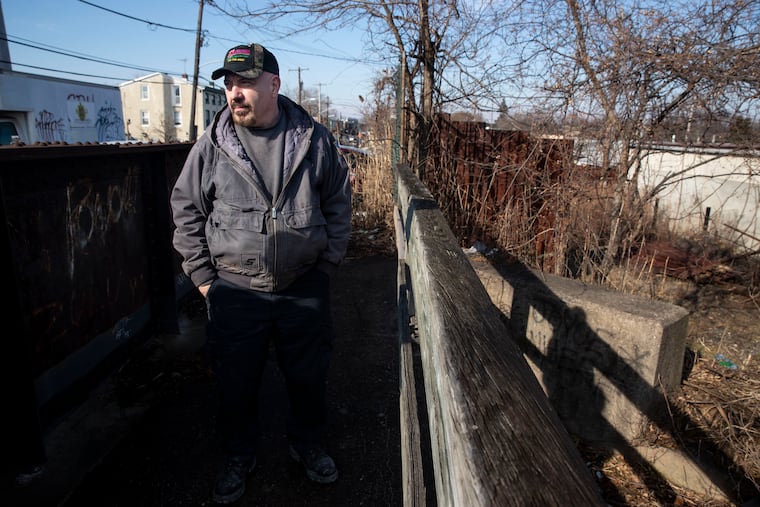
Philadelphia and freight railroad CSX have squared off over a decaying bridge in the southwest corner of the city. CSX wants to demolish the bridge, which carries traffic and pedestrians down Cemetery Avenue over railroad tracks, arguing that it is no longer of use. Philly authorities want CSX to keep footing the bill to maintain the bridge, which serves a neighborhood. Inquirer Reporter Andrew Maykuth covers the face-off.
Stay in the know and sign up for Inquirer News Alerts.
And please send us your questions, tips, and feedback. Sign up here to get Business Weekly delivered to your inbox. Thanks for reading.
— Ezequiel Minaya (@zekeminyana, business@inquirer.com)
As if urban life in hardscrabble Southwest Philadelphia were not tough enough, along comes one of the nation’s richest railroad companies, proposing to demolish a decaying bridge, and turn the busy street in front of your business into a permanent cul-de-sac.
So it is for Bill Janes and other inhabitants along Cemetery Avenue, where CSX Transportation wants to remove a 60-year-old city bridge carrying vehicles and pedestrians over its twin freight lines. CSXT, which is responsible for the span’s upkeep, says the Cemetery Avenue bridge is unnecessary. It asked the state to allow it to dismantle the bridge and abolish the crossing forever.
“It’s ridiculous,” said Janes, 61, who owns several properties on Cemetery Avenue including an auto-repair garage, which he fears would lose customers if the street were to become a dead end. “I’m surprised they want to shut it down. There’s so much traffic here.”
CSXT filed the request in 2019 with the Pennsylvania Public Utility Commission, which has jurisdiction over the 8,785 railroad crossings in Pennsylvania, including about 640 operating public crossings in Philadelphia. The railroad’s request got little public attention and Janes only learned of CSXT’s proposal because he cornered some city officials inspecting the span a year ago. But the case has quietly generated an astonishing volume of testimony, engineering reports, and rebuttals before the PUC.
Read more about CSXT and the Cemetery Avenue bridge.
What else you need to know ...
Green bonds: Renowned for its sumptuous plantings and exuberant orchids, Longwood Gardens is going green in a new way: “green bonds.” Longwood is using these fast-growing bonds — which are marketed to investors who aim to back environmentally friendly projects. Its $250 million renovation is being funded through a combination of grants, endowment money, and a tax-exempt “green” bond issue for $200 million in 2021. A lot of towns are following suit.
Pandemic hangover: Philadelphia enters the post-pandemic era with fewer jobs and potentially less tax revenue compared with the period before the health emergency, according to a new research paper by the Pew Charitable Trusts. As of September 2021, the city lost 7.6% of its total jobs since March 2020. And due to remote work and other factors, the net impact could be as many as 19,000 fewer workers in the city each day, according to the study.
Making moves: ChristianaCare has reached a preliminary agreement to acquire financially troubled Crozer Health, a deal that would bring Delaware’s largest health system into Southeastern Pennsylvania’s highly competitive market. ChristianaCare and Crozer’s owner, Prospect Medical Holdings Inc., announced their tentative agreement Friday. Terms were not disclosed.
The Pennsylvania Public Utility Commission has jurisdiction over the 8,785 railroad crossings in Pennsylvania, including about 640 operating public crossings in Philadelphia. Here is a story about one crossing in Southwest Philadelphia.